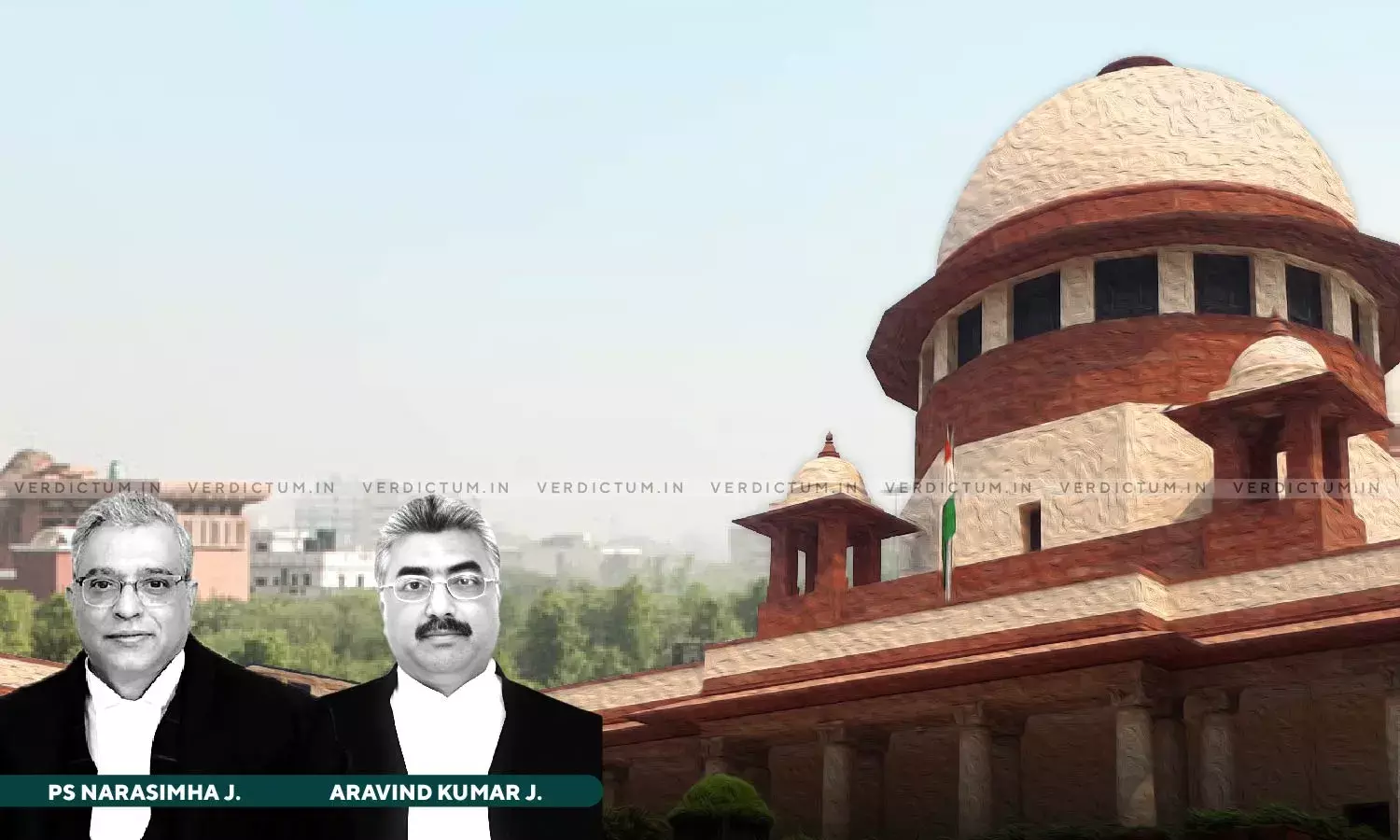Continuous Readiness & Willingness Is Condition Precedent To Grant Relief Of Specific Performance: Supreme Court
The Supreme Court reiterated that the condition precedent for granting the relief of specific performance is a party's continuous readiness and willingness under Section 16(c) of the Specific Relief Act, 1963.
The Court explained the distinction between the terms ‘readiness’ and ‘willingness’ of a party. the Court stated that ‘readiness’ is the capacity of a party to perform the contract which included their financial position to pay for the sale consideration, while ‘willingness’ is the conduct of the party.
A Bench of Justice Pamidighantam Sri Narasimha and Justice Aravind Kumar observed, “As rightly pointed out by the trial court, the respondent-plaintiff has not produced any satisfactory evidence to prove his readiness and willingness. As regards ‘willingness’ of the plaintiff to perform his part of the contract, the conduct of the plaintiff warranting the performance has to be looked into.”
AOR Guntur Prabhakar represented the appellant, while Advocate D. Bharat Kumar appeared for the respondent.
The parties had executed an agreement whereby the appellant agreed to sell a property to the respondent. An advance payment was made on the same day. The sale deed was to be executed within a year after surveying the land. However, the appellant allegedly postponed the execution, leading the respondent to issue a legal notice.
The respondent filed a suit for specific performance or, alternatively, for a refund of the advance payment with interest. The trial court denied the specific performance but ordered a refund with interest. The trial court's denial of specific performance was based on the respondent's “unexplained silence and inaction” to enforce the agreement.
The Supreme Court held that the trial Court had rightly held that the respondent had not sufficiently explained and proved that he was always ready and willing to perform his part of the contract. “The continuous readiness and willingness is a condition precedent to grant the relief of specific performance,” the Court stated.
“Section 16(c) of the Specific Relief Act mandates ‘readiness and willingness’ of the plaintiff to be averred and proved and it is a condition precedent to obtain the relief of specific performance,” the Court noted.
The Court upheld the decision of the trial Court which rightly held that plaintiff had not sufficiently explained and proved that he was always ready and willing to perform his part of the contract. “As such the High Court and the First Appellate Court had erred in holding that plaintiff had proved his readiness and willingness,” the Bench added.
Consequently, the Bench held, “In order to obtain a decree for specific performance, the plaintiff must aver and prove that he has performed his part of the contract and has always been ready and willing to perform the terms of the contract which are to be performed by him. Section 16(c) of the Specific Relief Act mandates ‘readiness and willingness’ of the plaintiff to be averred and proved and it is a condition precedent to obtain the relief of specific performance.”
Accordingly, the Supreme Court restored the judgment of the trial court and allowed the appeal.
Cause Title: Pydi Ramana @ Ramulu v. Davarasety Manmadha Rao (Neutral Citation: 2024 INSC 507)
Appearance:
Appellant: AOR Guntur Prabhakar; Advocates Prerna Singh and Guntur Pramod Kumar
Respondent: AOR Abhijit Sengupta; Advocates D. Bharat Kumar, Tadimalla Bhaskar Gowtham, Aman Shukla, Siddhartha Sinha, Bhoumik Nayyar, Yatika Gupta, M. Chandrakanth Reddy and Anu Priya Nisha Minz




